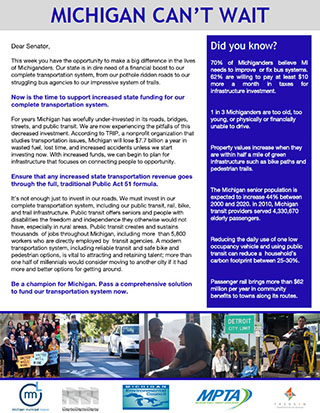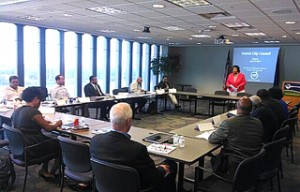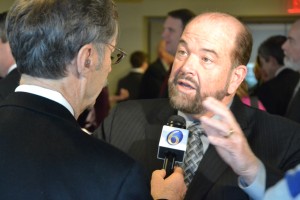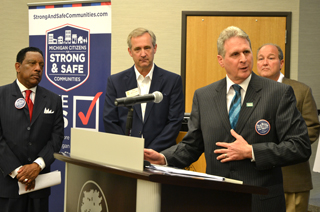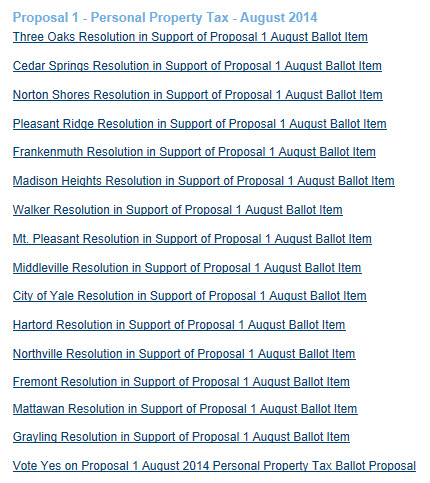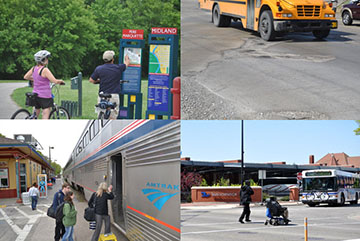
There are many transit options in Michigan and a complete transportation funding program would support all of them.
Discussions are currently taking place in Lansing on finding a way to raise new revenue for Michigan’s transportation network during the current lame duck legislative session.
House Bill 5477 is a key pieces to this new revenue.
It would switch the current cents per gallon tax on fuel to a percentage based tax on the wholesale price and gradually increase that percentage over the next several years.
The proposed funding solution is a nine-bill package that would provide yearly increases to transportation funding and would reach $1.5 billion in new annual revenue by 2020.
Legislators have an incredible opportunity to solve Michigan’s transportation needs and develop a comprehensive solution for investing in Michigan’s infrastructure.
This plan would not only invest in roads and bridges, but would provide additional funds for public transit, trails, ports, and rail. Download the Michigan’s Can’t Wait flyer.
The Senate could take this up for a vote as soon as Thursday (Nov. 13, 2014) and we need your help. Please contact your Senator and let them know that you are supportive of increasing transportation revenue and the positive impact it will have on your community. We are on the verge transforming our transportation system and you can help ensure its successful passage.
To make it as easy as possible for you, we’ve drafted a sample email that you can edit and send to your senators.
To access this tool, go to our action center here and click on the item in the blue Action Alert! box.
A comprehensive transportation funding system is one of the four key parts of the Michigan Municipal League’s Partnership for Place initiative released in 2013. Read more about why this is important here.
This blog post was by John LaMacchia II, legislative associate for the Michigan Municipal League. John can be reached at jlamacchia@mml.org and 517-908-0303.


